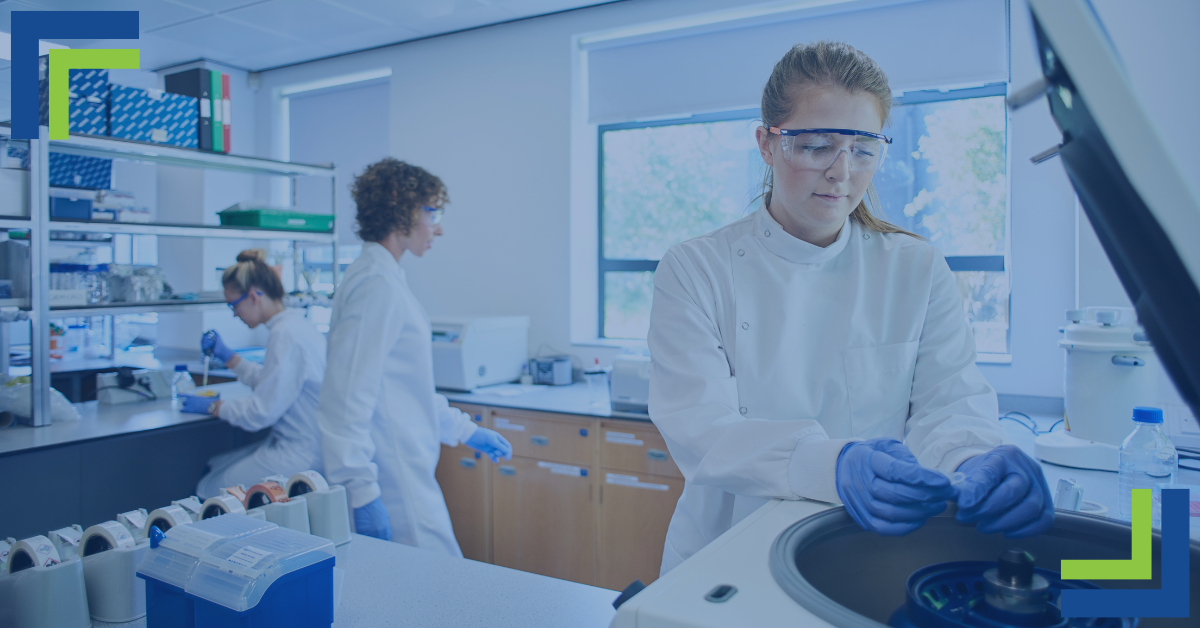
Like it or not, a laboratory can be a dangerous place. After all, it’s filled with chemicals as well as equipment that’s often heavy, fragile, sharp, or all three! That doesn’t mean all laboratories are dangerous, though. In fact, yours can be pretty safe, as long as you maintain a heavy focus on safety at all times.
The first step to being safe is anticipating what can go wrong, so why don’t we talk about some common hazards that you may have to deal with in your lab?
Emergency: Fire
You should always be wary of the potential for a fire, but pay extra close attention to a few select places. If you store flammable chemicals in your lab, this is a highly likely spot for a fire. The same goes for electronics, especially those that are meant to provide heat for any purpose.
While anticipating flames is important, you should also be prepared for a scenario in which it actually happens. Is there a sprinkler system that will kick in? Do you know where the fire extinguisher is? Do you know how to access and use it? Be sure to provide proper training for this equipment to all lab employees so that everyone is prepared if the situation were to occur.
Emergency: Flood
Depending on the situation, water can be a great help or an immense hazard. In a lab, it can become the latter in several ways. Is the lab in an area where rain is common? Is it on the first floor of the building? Are there a lot of overhead pipes that could potentially burst?
If your answer to any of those questions is “yes,” be sure to have a contingency plan in place. Floor drains are highly advisable, as is equipment that you can use to manually remove water, like an industrial shop vac. It’s also crucial to keep water away from any electrical equipment that could harm you should it get wet, so be mindful of this if you find yourself in an unfortunate flooding situation.
Emergency: Extreme Weather
Nature will always be a force to be reckoned with, even in the perceived safety of the indoors. It can be a catalyst for the aforementioned flooding, but water damage isn’t the only thing bad weather can bring.
It’s always wise to anticipate strong winds from hurricanes or tornadoes. If you’re in the planning stage for your lab, consider finding a space away from outside walls and windows of a building. Should your lab still be at the mercy of destructive winds, remember your employees’ safety is top priority. Ensure they are in the safest place possible should bad weather hit while they’re in the lab. Memorize all the shelter in place procedures and know the “danger zones” to avoid.
Emergency: Hazardous Material Spill
Of all the potential emergencies a lab can face, hazardous materials present the widest range and most common forms of danger. Depending on what chemicals are being used, you could be facing anything from chemical burns to explosions.
Most chemical spills are easily dealt with by laboratory staff, but only if the lab itself provides them with the necessary equipment. Eye wash stations are a must, as well as proper protective gear and disposal containers. In the event of a more subtle emergency such as a gas leak, it’s imperative that monitoring devices are in place. Just as you wouldn’t set up a lab without a sprinkler system, you need to have things in place to detect harmful substances.
What about the incidents that are too big for your staff to handle? Having a rock solid response plan is crucial. Know the evacuation procedure, how to clean yourself off, and who to call to handle the cleanup. All of these procedures should be memorized by everyone before even a single bunsen burner is turned on.
Setting up a lab is hard work, but it’s all worth it to make sure things are done properly and employees are kept safe. While cutting corners may seem productive in the immediate future, you’ll be regretting it if you’re faced with a lab fire or hazardous material spill. BaneBio is an industry expert in setting up your lab for success. With extensive experience in lab logistics, we’ll make sure you start on the right foot with safety in mind.
